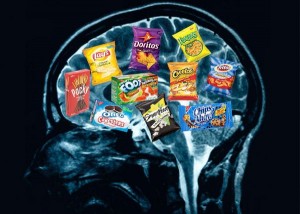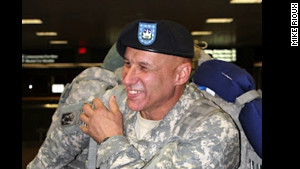Brain is like central command post that controls and commands our body. Without the command post (brain) every part of the body will be nonfunctional. For example, severe brain injury like, traumatic brain injury, is lethal and barely recoverable. However, there seems to be a solution for treating traumatic brain injury. The solution is Omega-3 fish oil.

Image from: http://www.cnn.com/2012/10/19/health/fish-oil-brain-injuries/index.html?iref=allsearch
Courtesy: Ghassemi Family
In March 2010, Bobby Ghassemi 17-year-old student got sever traumatic brain injury due to a car accident. He was diagnosed with Glasgow Coma Score of 3, meaning dead (a brick of wood is diagnosed with Glasgow Coma Score of 3). Bobby had so much bleeding within the brain that pressure has to be released by taking portion of his skull. Doctors believed that full brain recovery was unlikely or rather impossible. But Bobby’s father, Peter Ghassemi, was looking for a way out and found out that fish oil could help his son.
Fish Oil and Traumatic Brain Injury (video)
Michael Lewis, Army colonel and a doctor, suggested to Ghassemi that fish oil could help recovering damaged brains. Lewis claimed that 30% of the brain is composed of Omega-3 and by saturating the brain with Omega-3 could help to reconstruct the brain. Problem with this theory is that there was no research that support it is a good treatment except the case of Randal McCloy. McCloy was only survivor of mine disaster in West Virginia in 2006. McCloy’s brain was severely damaged due to high intake of carbon monoxide and methane. McCloy’s neurosurgeon, Dr. Julian Bailes, injected large doses of Omega-3 into McCloy resulting almost full recovery of the brain.

Image from: http://www.cnn.com/2012/09/11/health/health-fish-oil/index.html?iref=allsearch
Courtesy: Getty Images
So what does Omega-3 does to the brain? Hee-Young Kim et al. claims that Omega-3 fats helps to accumulate fatty acids around the neurons to prevent cell death and further help to reconnect damaged neurons. In addition, based on the animal testing, the fish oil can help to reduce neural inflammation from concussions. Animals that received fish oils after concussion showed 98% recovery.
Drawback from this treatment is that there are little human testing done so far and recovery of Ghassemi and McCloy is just only two cases to prove or to say Omega-3 is effective in treating patients with traumatic brain injury. However, there are no clear treatments or drugs that can cure traumatic brain injury like Omega-3 did. Therefore, Omega-3 might be the best solution for treating the patients with brain injury at the moment. Further research on Omega-3 effectiveness on brain injury could explain why miracle recovery of both Ghassemi and McCloy has happened.
By: Young Ryu





